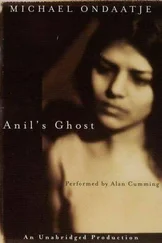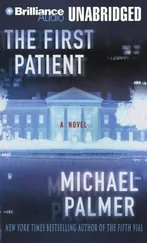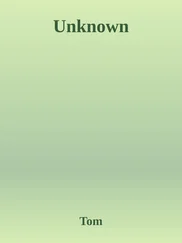Michael Ondaatje - The English Patient
Здесь есть возможность читать онлайн «Michael Ondaatje - The English Patient» весь текст электронной книги совершенно бесплатно (целиком полную версию без сокращений). В некоторых случаях можно слушать аудио, скачать через торрент в формате fb2 и присутствует краткое содержание. Жанр: Старинная литература, на русском языке. Описание произведения, (предисловие) а так же отзывы посетителей доступны на портале библиотеки ЛибКат.
- Название:The English Patient
- Автор:
- Жанр:
- Год:неизвестен
- ISBN:нет данных
- Рейтинг книги:4 / 5. Голосов: 1
-
Избранное:Добавить в избранное
- Отзывы:
-
Ваша оценка:
- 80
- 1
- 2
- 3
- 4
- 5
The English Patient: краткое содержание, описание и аннотация
Предлагаем к чтению аннотацию, описание, краткое содержание или предисловие (зависит от того, что написал сам автор книги «The English Patient»). Если вы не нашли необходимую информацию о книге — напишите в комментариях, мы постараемся отыскать её.
The English Patient — читать онлайн бесплатно полную книгу (весь текст) целиком
Ниже представлен текст книги, разбитый по страницам. Система сохранения места последней прочитанной страницы, позволяет с удобством читать онлайн бесплатно книгу «The English Patient», без необходимости каждый раз заново искать на чём Вы остановились. Поставьте закладку, и сможете в любой момент перейти на страницу, на которой закончили чтение.
Интервал:
Закладка:
You and then the Americans converted us. With your missionary rules. And Indian soldiers wasted their lives as heroes so they could be pukkah . You had wars like cricket. How did you fool us into this? Here … listen to what you people have done.
He throws the rifle on the bed and moves towards the Englishman. The crystal set is at his side, hanging off his belt. He unclips it and puts the earphones over the black head of the patient, who winces at the pain on his scalp. But the sapper leaves them on him. Then he walks back and picks up the rifle. He sees Hana at the door.
One bomb. Then another. Hiroshima. Nagasaki.
He swerves the rifle towards the alcove. The hawk in the valley air seems to float intentionally into the V sight. If he closes his eyes he sees the streets of Asia full of fire. It rolls across cities like a burst map, the hurricane of heat withering bodies as it meets them, the shadow of humans suddenly in the air. This tremor of Western wisdom.
He watches the English patient, earphones on, the eyes focused inwards, listening. The rifle sight moves down the thin nose to the Adam’s apple, above the collarbone. Kip stops breathing. Braced at exact right angles to the Enfield rifle. No waver.
Then the Englishman’s eyes look back at him.
Sapper.
Caravaggio enters the room and reaches for him, and Kip wheels the butt of the rifle into his ribs. A swat from the paw of an animal. And then, as if part of the same movement, he is back in the braced right-angle position of those in firing squads, drilled into him in various barracks in India and England. The burned neck in his sights.
Kip, talk to me.
Now his face is a knife. The weeping from shock and horror contained, seeing everything, all those around him, in a different light. Night could fall between them, fog could fall, and the young man’s dark brown eyes would reach the new revealed enemy.
My brother told me. Never turn your back on Europe. The deal makers. The contract makers. The map drawers. Never trust Europeans, he said. Never shake hands with them. But we, oh, we were easily impressed—by speeches and medals and your ceremonies. What have I been doing these last few years? Cutting away, defusing, limbs of evil. For what? For this to happen?
What is it? Jesus, tell us!
I’ll leave you the radio to swallow your history lesson. Don’t move again, Caravaggio. All those speeches of civilisation from kings and queens and presidents … such voices of abstract order. Smell it. Listen to the radio and smell the celebration in it. In my country, when a father breaks justice in two, you kill the father.
You don’t know who this man is.
The rifle sight unwavering at the burned neck. Then the sapper swerves it up towards the man’s eyes.
Do it, Almásy says.
The eyes of the sapper and the patient meet in this half-dark room crowded now with the world.
He nods to the sapper.
Do it, he says quietly.
Kip ejects the cartridge and catches it as it begins to fall. He throws the rifle onto the bed, a snake, its venom collected. He sees Hana on the periphery.
The burned man untugs the earphones off his head and slowly places them down in front of him. Then his left hand reaches up and pulls away the hearing aid, and drops it to the floor.
Do it, Kip. I don’t want to hear any more.
He closes his eyes. Slips into darkness, away from the room.
The sapper leans against the wall, his hands folded, head down. Caravaggio can hear air being breathed in and out of his nostrils, fast and hard, a piston.
He isn’t an Englishman.
American, French, I don’t care. When you start bombing the brown races of the world, you’re an Englishman. You had King Leopold of Belgium and now you have fucking Harry Truman of the USA. You all learned it from the English.
No. Not him. Mistake. Of all people he is probably on your side.
He would say that doesn’t matter, Hana says.
Caravaggio sits down in the chair. He is always, he thinks, sitting in this chair. In the room there is the thin squawking from the crystal set, the radio still speaking in its underwater voice. He cannot bear to turn and look at the sapper or look towards the blur of Hana’s frock. He knows the young soldier is right. They would never have dropped such a bomb on a white nation.
The sapper walks out of the room, leaving Caravaggio and Hana by the bed. He has left the three of them to their world, is no longer their sentinel. In the future, if and when the patient dies, Caravaggio and the girl will bury him. Let the dead bury the dead. He has never been sure what that meant. Those few callous words in the Bible.
They will bury everything except the book. The body, the sheets, his clothes, the rifle. Soon he will be alone with Hana. And the motive for all this on the radio. A terrible event emerging out of the shortwave. A new war. The death of a civilisation.
Still night. He can hear nighthawks, their faint cries, the muted thud of wings as they turn. The cypress trees rise over his tent, still on this windless night. He lies back and stares into the dark corner of the tent. When he closes his eyes he sees fire, people leaping into rivers into reservoirs to avoid flame or heat that within seconds burns everything, whatever they hold, their own skin and hair, even the water they leap into. The brilliant bomb carried over the sea in a plane, passing the moon in the east, towards the green archipelago. And released.
He has not eaten food or drunk water, is unable to swallow anything. Before light failed he stripped the tent of all military objects, all bomb disposal equipment, stripped all insignia off his uniform. Before lying down he undid the turban and combed his hair out and then tied it up into a topknot and lay back, saw the light on the skin of the tent slowly disperse, his eyes holding onto the last blue of light, hearing the drop of wind into windlessness and then hearing the swerve of the hawks as their wings thudded. And all the delicate noises of the air.
He feels all the winds of the world have been sucked into Asia. He steps away from the many small bombs of his career towards a bomb the size, it seems, of a city, so vast it lets the living witness the death of the population around them. He knows nothing about the weapon. Whether it was a sudden assault of metal and explosion or if boiling air scoured itself towards and through anything human. All he knows is, he feels he can no longer let anything approach him, cannot eat the food or even drink from a puddle on a stone bench on the terrace. He does not feel he can draw a match out of his bag and fire the lamp, for he believes the lamp will ignite everything. In the tent, before the light evaporated, he had brought out the photograph of his family and gazed at it. His name is Kirpal Singh and he does not know what he is doing here.
He stands now under the trees in the August heat, untur-banned, wearing only a kurta . He carries nothing in his hands, just walks alongside the outline of hedges, his bare feet on the grass or on terrace stone or in the ash of an old bonfire. His body alive in its sleeplessness, standing on the edge of a great valley of Europe.
In the early morning she sees him standing beside the tent. During the evening she had watched for some light among the trees. Each of them in the villa had eaten alone that night, the Englishman eating nothing. Now she sees the sapper’s arm sweep out and the canvas walls collapse on themselves like a sail. He turns and comes towards the house, climbs the steps onto the terrace and disappears.
In the chapel he moves past the burned pews towards the apse, where under a tarpaulin weighted down with branches is the motorbike. He begins dragging the covering off the machine. He crouches down by the bike and begins nuzzling oil into the sprockets and cogs.
Читать дальшеИнтервал:
Закладка:
Похожие книги на «The English Patient»
Представляем Вашему вниманию похожие книги на «The English Patient» списком для выбора. Мы отобрали схожую по названию и смыслу литературу в надежде предоставить читателям больше вариантов отыскать новые, интересные, ещё непрочитанные произведения.
Обсуждение, отзывы о книге «The English Patient» и просто собственные мнения читателей. Оставьте ваши комментарии, напишите, что Вы думаете о произведении, его смысле или главных героях. Укажите что конкретно понравилось, а что нет, и почему Вы так считаете.












